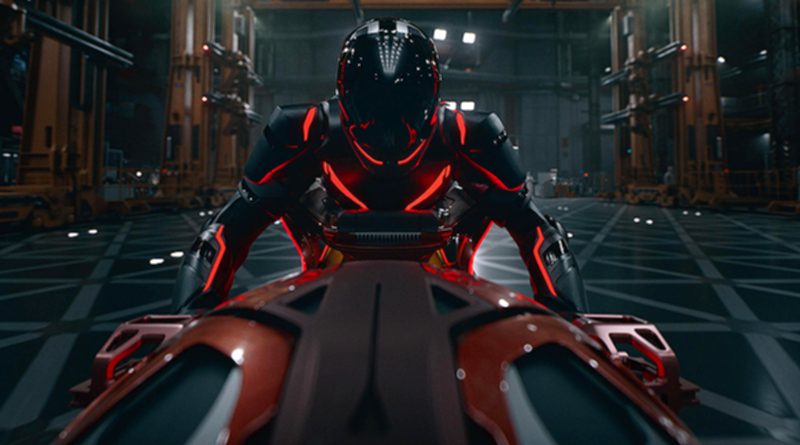Tron: Ares Review: The Long-Gestating Third Tron Movie is Visually Stunning But Narratively Hollow
The arrival of Tron: Ares gives me the initial feeling equivalent to how 7-year-old Sam Flynn (Owen Best) from Tron: Legacy had been looking forward to his father, Kevin (Jeff Bridges), taking him to the Grid as promised, only to be disappointed that he ended up disappearing without a trace. That disappointment stems from the moment I realised Jared Leto was attached to the project, not only as the new main protagonist but also serving as one of the co-producers.
When the trailer was released this year, it looked promising, with all the cool visuals, stylish action set pieces, and Nine Inch Nails’ signature industrial-heavy synth score playing in the background. But once Jared Leto appeared in the trailer in a light suit, his presence immediately broke the immersion for me, worrying that Tron: Ares would be heading for the derezzed outcome. Besides, having him on board doesn’t exactly inspire confidence, even though he’s the one who’s been lobbying for the third Tron movie for years. Over the past decade, especially after the post-Dallas Buyers Club, Leto’s method and sometimes exaggerated acting style came across as largely mixed results, evidently by movies like Suicide Squad and House of Gucci.
This begs an all-important question: Is Tron: Ares DOA? Well, surprisingly no. Credit to Joachim Rønning, who is no stranger to big-budget blockbusters, for understanding the assignment. At least to a certain extent, beginning with Nine Inch Nails’ pulsating score complements the stunning visuals. It sure looks great on IMAX 3D. The first half gets the tone right, thanks to the assured pace that keeps me hooked with the movie. The story introduces Ares (Jared Leto), where we learn he’s a sophisticated, state-of-the-art AI sentient being programmed as a Master Control to protect the Grid. His job is to obey and follow whatever his arrogant user, Julian Dillinger (Evan Peters), tells him to do.
Julian has been trying to convince his backers about his tech, even showing a live demonstration in front of them. Ares can be digitally rendered using a generative laser system, reminiscent of a 3D printer, allowing him to appear in the real world, other than just safeguarding the Grid. Except that Julian leaves out the most important details: For all the impressive technology that allows him to deploy Ares and cyber soldiers, they don’t last longer than 29 minutes before they disintegrate into pieces. To counter the problem, he needs the elusive Permanence Code to prolong his digital creations without the glitches.
His tech rival, ENCOM, led by CEO Eve Kim (Greta Lee), who is still reeling from her sister’s death, somehow manages to decipher the very code that originated from Kevin Flynn. After successfully running a test, Eve finally has the opportunity to take ENCOM to the next level. Given the franchise’s recurring themes surrounding the dark side of technology and artificial intelligence, I was expecting Jesse Wigutow’s screenplay would delve deeper into the subject.
Instead, I was surprised that Tron: Ares is pretty much reduced to a chase movie, where the whole point of the story revolves around Eve trying her best not to let the Permanence Code fall into the wrong hands. The ever-persistent Julian finds out about it, and he’ll stop at nothing to get the code at all costs by deploying Ares and his second-in-command, Athena (a no-nonsense Jodie Turner-Smith) into the real world. The subsequent chase sequence through the city blocks is visually immersive, notably the way the neon-lit light cycle leaves a trail of bright, red colour block that contrasts against the night landscape. The action set pieces are thrillingly staged with enough verve.
Again, the IMAX 3D helps, and so does Nine Inch Nails’ soundtrack, keeping the rhythm alive, both visually and musically. Interestingly, the world of Tron extends beyond the iconic light cycles with new digital renderings, namely a wingsuit and a tank. The actors are mostly adequate, but the biggest problem lies with Leto. He may look cool donning the light suit while possessing the suitably impassive look of how an AI sentient should be.
Unfortunately, the movie attempts to give him a character arc, especially after Ares grows a conscience and begins to exhibit curiosity about what it’s like to be human. It’s like Blade Runner all over again, which ironically, Leto happened to appear in the sadly underappreciated sequel back in 2017. Too bad his transition from a mere AI following orders to turning into a rogue is perfunctorily written, to the point it’s hard for me to root for his so-called journey of self-discovery. It doesn’t help either when his chemistry with Greta Lee is nearly non-existent and at times, even feels awkward.
Rønning did address what happens to Sam Flynn and Quorra, played by Garrett Hedlund and Olivia Wilde, respectively, who previously appeared in Tron: Legacy. In a perfect world, it would be a dream come true to see the two reprise their roles. Jeff Bridges shows up as Kevin Flynn, albeit in a role serving more like a fan service rather than a progressive necessity to the story.
It’s far from a great Tron movie, especially given the 15-year wait since the last instalment. If you can look past Leto’s lacklustre performance and the surface-level storytelling, Tron: Ares offers sufficient entertainment values that justify its cinematic big-screen experience.





